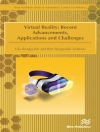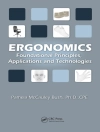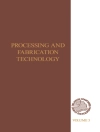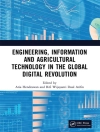- Highlights current issues that challenge the safety of agri-food supply chains (e.g. food adulteration, malicious contamination)
- Assesses the recent developments implemented to improve safety and quality at all levels of the agri-food supply chain, including the use of smart agri-food systems
- Emphasis on the need for improved tracking and traceability systems of food products to prevent and manage potential threats to safety
قائمة المحتويات
Part 1 Tracking and traceability
1.Advances in traceability systems in agri-food supply chains: Samantha Islam, University of Cambridge, UK; Louise Manning, Royal Agricultural University, UK; and Jonathan M. Cullen, University of Cambridge, UK;
2.Advances in fingerprint and rapid methods for improved traceability in agri-food supply chains: Daniel Cozzolino, Heather E. Smyth and Yasmina Sultanbawa, ARC Industrial Transformation Training Centre for Uniquely Australian Foods and Centre for Nutrition and Food Sciences, Queensland Alliance for Agriculture and Food Innovation, The University of Queensland, Australia;
3.Advances in identifying GM plants: current frame of the detection of transgenic GMOs: Yves Bertheau, INRA Honorary Directeur de recherche, Honorary Scientist at Centre d’Ecologie et des Sciences de la Conservation (CESCO), Muséum national d’Histoire naturelle, Centre National de la Recherche Scientifique, Sorbonne Université, France;
4.Advances in identifying GM plants: toward the routine detection of ‘hidden’ and ‘new’ GMOs: Yves Bertheau, INRA Honorary Directeur de recherche, Honorary Scientist at Centre d’Ecologie et des Sciences de la Conservation (CESCO), Muséum national d’Histoire naturelle, Centre National de la Recherche Scientifique, Sorbonne Université, France;
Part 2 Product integrity and malicious contamination
5.Foodomics: Advances in product testing in agri-food supply chains: Louise Manning, Royal Agricultural University, UK;
6.Key challenges and developments in non-targeted methods or systems to identify food adulteration: Sara Erasmus and Saskia van Ruth, Wageningen University & Research, The Netherlands;
7.Advances in identifying and tracking malicious contamination of food in agri-food supply chains: Marta Marmiroli, University of Parma, Italy; and Jason C. White, The Connecticut Agricultural Experiment Station, USA;
8.The role of technology in crisis management and product recall in food supply chains: Louise Manning, Royal Agricultural University, UK; and Aleksandra Kowalska, Maria Curie-Skłodowska University, Poland;
Part 3 Safety, quality and smart systems
9.Sampling and statistics in assessment of fresh produce: K. B. Walsh, Central Queensland University, Australia; and V. A. Mc Glone and M. Wohlers, The New Zealand Institute for Plant and Food Research Limited, New Zealand;
10.Developing decision support systems for crop yield forecasts: Lin Liu, University of Minnesota – Twin Cities, USA; and Bruno Basso, Michigan State University, USA;
11.Smart post-harvest technology to maintain quality and safety in fresh produce supply chains: James Monaghan, Harper Adams University, UK;
12.Advances in techniques for identifying and tracking foreign bodies in agri-food supply chains: Ilija Djekic, University of Belgrade, Serbia;
13.The use of Internet of Things (Io T) technology to improve transparency in agri-food supply chains: Rounaq Nayak, Harper Adams University, UK;
14.Drivers of farmers’ usage of digital marketplace platform: evidence from India: Arpita Agnihotri, Penn State Harrisburg, USA; and Saurabh Bhattacharya, Newcastle University Business School, UK;
عن المؤلف
Saurabh Bhattacharya is a Senior Lecturer in Marketing at Newcastle University Business School, Newcastle Upon Tyne, UK. The teaching and research interest of Saurabh lies with research methods and digital marketing. In academic publications, Saurabh has published research papers in leading national and international journals such as Journal of World Business, Journal of Advertising Research, Psychology & Marketing, and Journal of International Consumer Marketing.












